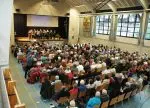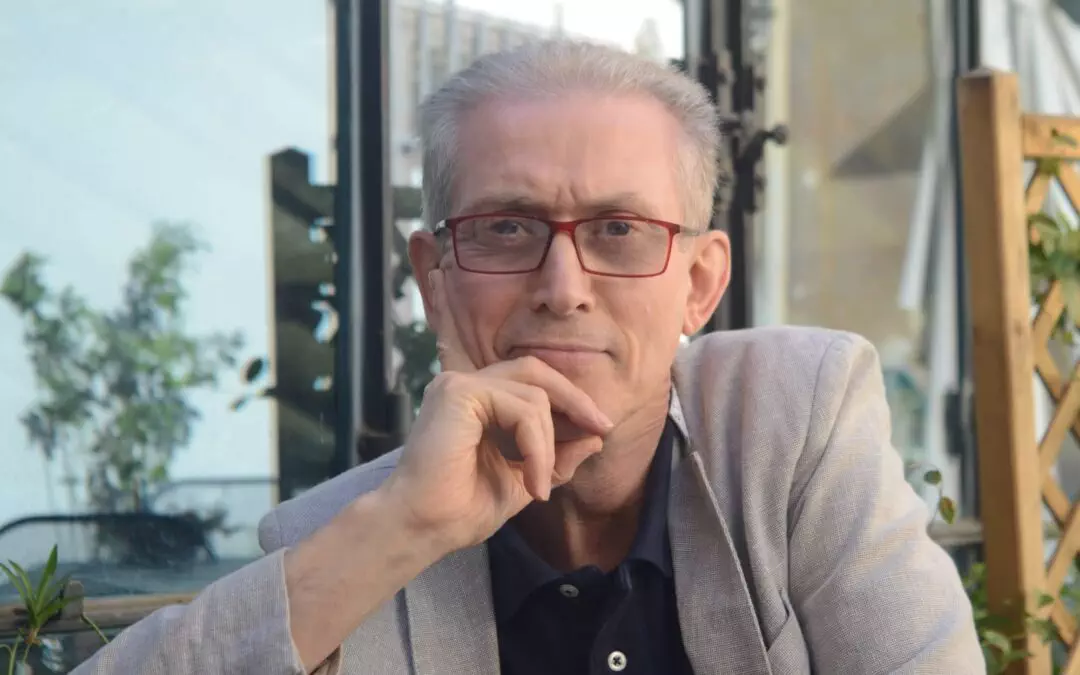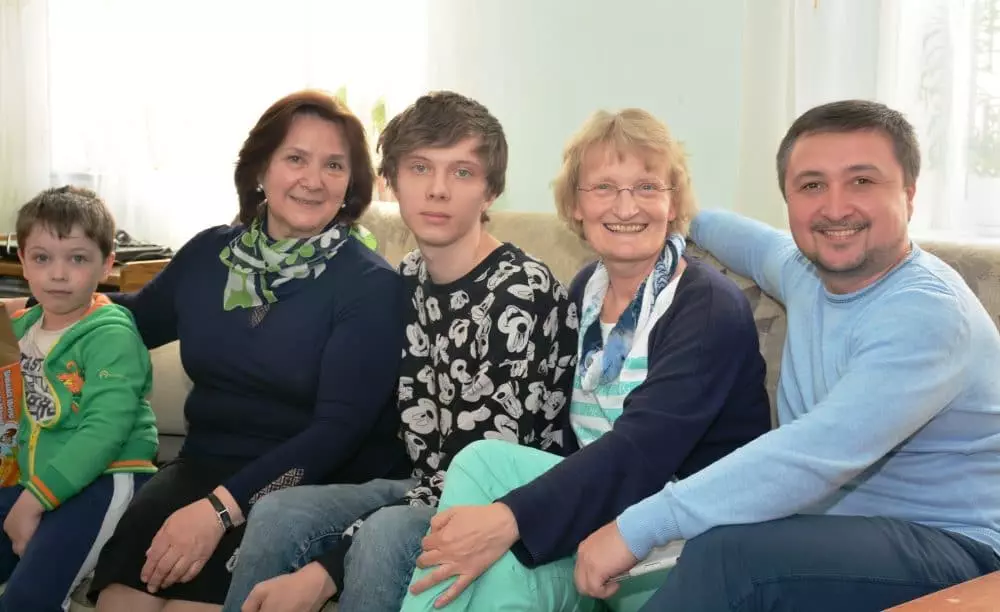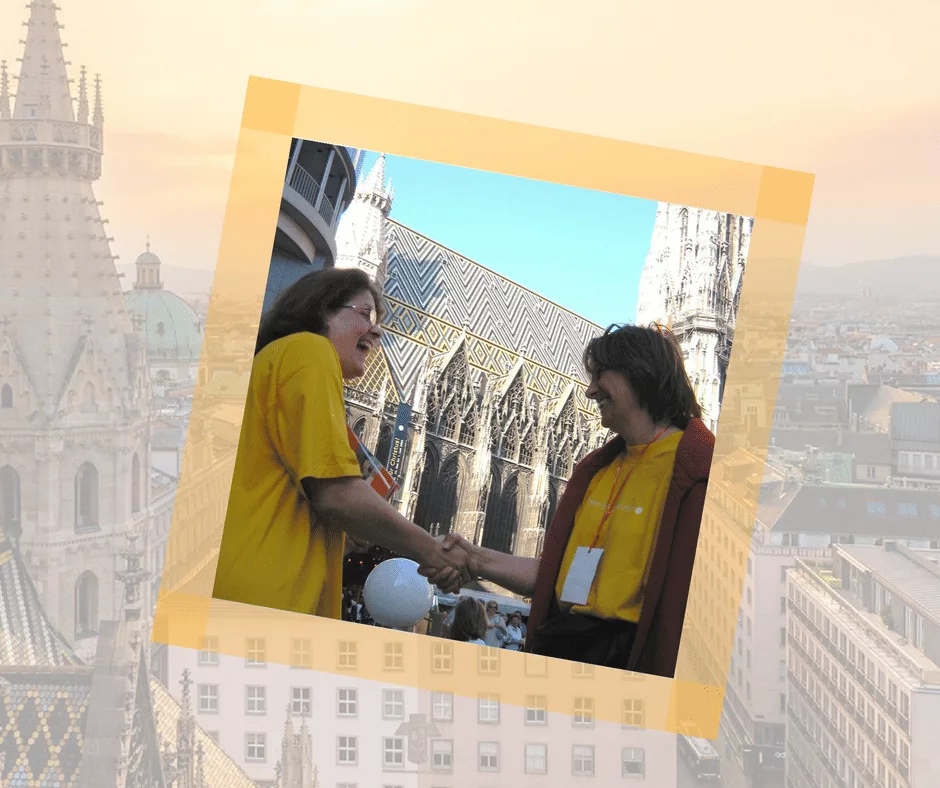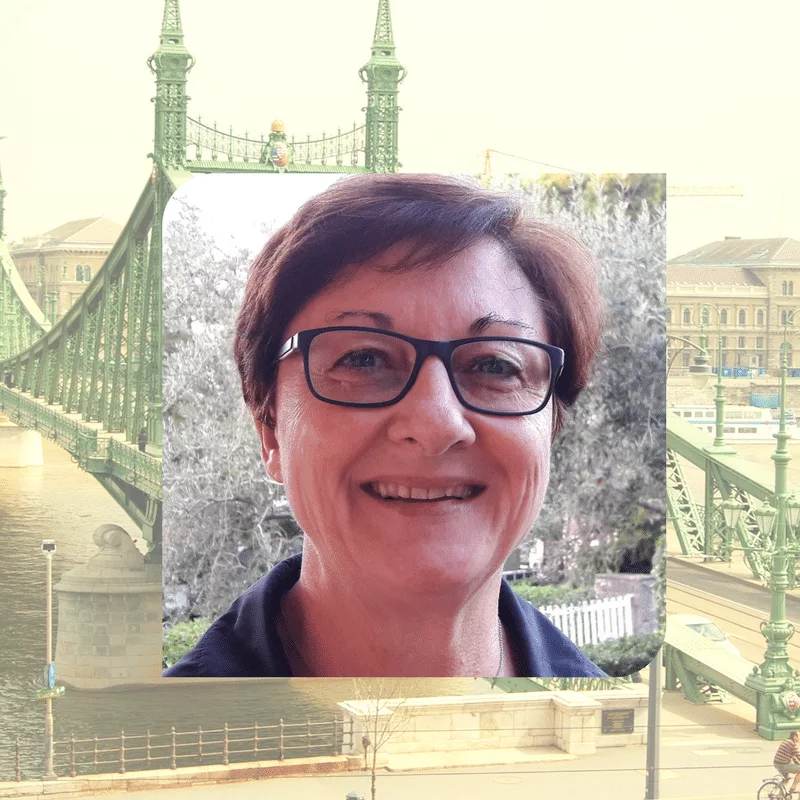
by TogetherforEurope | Oct 14, 2017 | Experiences, reflections and interviews, News
9 November 1989: an unforgettable date in recent history marking the fall of the Berlin Wall. In the evening of that same day I was too transfixed in my chair in front of the TV to notice an unexpected event the import of which my own young generation at the time could not possibly grasp.
I had studied (and held a degree in) modern history. I studied all about the Cold War and the building of the Berlin Wall, which in those November days was being reversed to rubble. A few months later we were to learn from the press the stories of the peoples of Czechoslovakia, Hungary, Poland and Romania who, by means of more or less peaceful revolutions, were freeing themselves from seven decades of Soviet burden.
I could never have dreamt on that November day, that the stories and images from the media would have become incarnated for me, in real people whom I was about to meet, as only a short month later I descended in Keleti Railway Station in Budapest, brought by train from Rome crossing Slovenia and Croatia. I was offered the post of Italian language and history teacher in a secondary school in the Hungarian capital. A small group of people with big smiles and a bunch of flowers welcomed me in the smoky atmosphere of the station. This was my first encounter with a country in Eastern Europe: the cordial encounter with these normal people who soon became a family to me, in distinct contrast to the atmosphere of sadness and distrust that still prevailed, with unambiguous signs of ‘control’ (groups of Soviet soldiers discharged onto footpaths by imposing military trucks). This despite the fact that a Hungarian Republic had been proclaimed in October 1989. It would take more than two years for the last soldier donning the red Soviet star to leave the country for good.
The first months of ‘freedom’ were a transition phase both politically and socially: whilst the democratic government was making its first steps and had to cope with many unknowns (and strikes!), a variety of products, some from abroad slowly filtered into the shops. Daily life was still complicated, at least for me, coming from the West. I was used to a certain style of cooking, but it was impossible to find the same ingredients on the market. One day in 1990, the taxi and the public transport drivers blocked all bridges over the Danube in protest against the increase in the price of petrol. In a flash there were endless queues outside shops selling bread and soon all shops were empty. «it’s like in ‘56» – people would say, meaning: there was nothing left to eat. People were unable to reconcile these conditions with a belief that the worst had already passed never to return.
Only when I began to teach did I fully appreciate the different social history in which I was now living, where all historical references were seen from the perspective of Moscow and revolved around the concept of class struggle. I found myself having to explain to my ingenuous students, things which until then I had taken for granted. Among the most obvious was an episode just prior to Christmas in 1990. In order to practice Italian conversation, we spoke about Italian Christmas traditions. I described enthusiastically images of the Nativity and the crib present in those days in every Italian family. After I spoke for about half an hour, a girl with dark hair put up her hand at the back of the class and asked: «Professor, but who is this Jesus?».
by Maria Bruna Romito

by TogetherforEurope | Oct 12, 2017 | News
The 500th Anniversary of the Reformation, and the 600th of Nicolas of Flue – what do these two commemorations mean to us today? 260 followers of the Swiss network of Together for Europe, belonging to many different Churches, met on 9th of September to reflect together on this topic in the Flueli-Ranft Hall, where “brother Nicola” lived.
“What is the significance of the life and work of Nicola of Flue for us personally, for our Churches, our Communities, and for our network of Together for Europe?” – this was the central question of our convention.
The participants hailed from all parts of Switzerland, representing 30 Christian Movements and Communities. The meeting was planned and organised together by the members of the Swiss TfE Coordination Team (from 10 Movements and Communities). Since the very beginning of the meeting it became clear that the encounter and mutual exchange of ideas was what everyone came for. The hall soon filled with many enthusiastic groups engrossed in dialogue.
The programme of the meeting varied from four short talks (representing different approaches to the life and work of Nicola of Flue), to a choir specially assembled for the event, a theatrical representation of “brother” Nicola’s prayer, a round table discussion which was profound and well attended.
Pastor Geri Keller and Roland Groebli, both experts on Nicola of Flue, Fr. Raffael Rieger of Schoenstatt, representative of the Swiss TfE Coordination Team, and Alisha Furer, historian and a representative of the youth held the round table which lasted for an hour. Selomie Zuercher of the “Jahu” Community of Bienne, a student of history, chaired this moment of dialogue. Through quotations from brother Nicola, the participants were invited to express their own experiences and limitations: “What stops me from opening up towards people of different denominations or religions? What helps me to do so? Do I have experiences of such “togetherness” to share? These and other inputs were an invitation to fight prejudice and to make the first steps, even in the simple day-to-day gestures, such as, for example in a shared bus journey to work.”
The fascination with brother Nicola is due among other things to his many identities: Nicola the mystic, the mediator, the peasant, the politician, the husband, the father and the spiritual director. In brief: Nicola the man, or brother Nicola, as one who is very close to people, and very close to God.
A variety of participants, drawn in in the first place by their interest for Nicola of Flue, expressed their enthusiasm for having met the network of Together for Europe. As one person said: “Thank you for your commitment to building TOGETHERNESS in Europe! I am also part of it now!”
Written by Elisabeth Reusser
For further information please visit the Swiss web site of Together for Europe: http://miteinander-wie-sonst.ch/miteinander/aktuelles
-
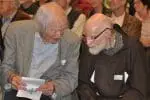
-
Flüeli (Schweiz) 9.9.2017 Foto: Patrizia Jurietti
-

-
Flüeli (Schweiz) 9.9.2017 Foto: Patrizia Jurietti
-

-
Flüeli (Schweiz) 9.9.2017 Foto: Patrizia Jurietti
-

-
Flüeli (Schweiz) 9.9.2017 Foto: Patrizia Jurietti
-

-
Flüeli (Schweiz) 9.9.2017 Foto: Patrizia Jurietti
-

-
Flüeli (Schweiz) 9.9.2017 Foto: Patrizia Jurietti
-

-
Flüeli (Schweiz) 9.9.2017 Foto: Patrizia Jurietti
-

-
Flüeli (Schweiz) 9.9.2017 Foto: Patrizia Jurietti
-

-
Flüeli (Schweiz) 9.9.2017 Foto: Patrizia Jurietti
-

-
Flüeli (Schweiz) 9.9.2017 Foto: Patrizia Jurietti
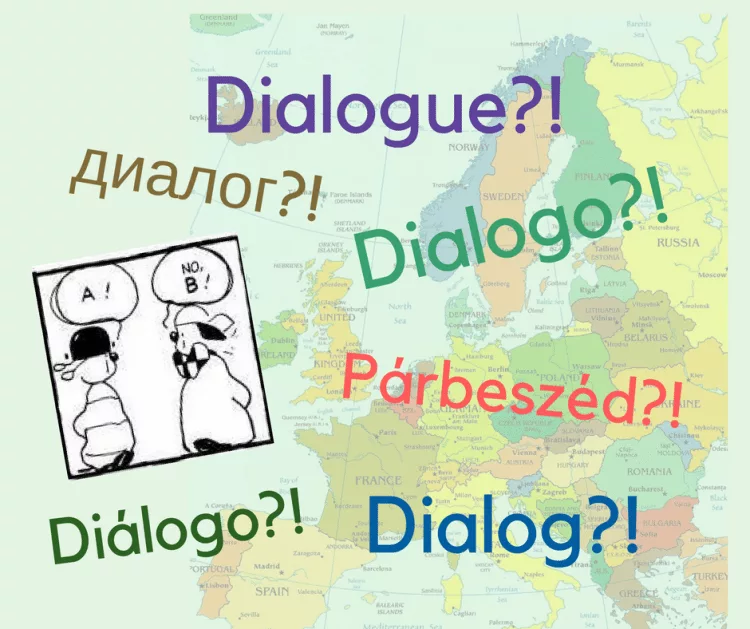
by TogetherforEurope | Sep 30, 2017 | 2017 Friends | Vienna, Austria, Experiences, reflections and interviews, News
Dialogue, Párbeszéd, Dialog, диалог, Dialogo, Dialóg…
A word fundamental to today’s Europe. How can we deepen our understanding of this word? We feel the need for Eastern and Western European countries to continue, or rather, to begin again getting to know each other. This is the premise for the upcoming meeting of Friends of Together for Europe in Vienna (9th -11th November 2017) which will be a ‘workshop’ on this topic.
-
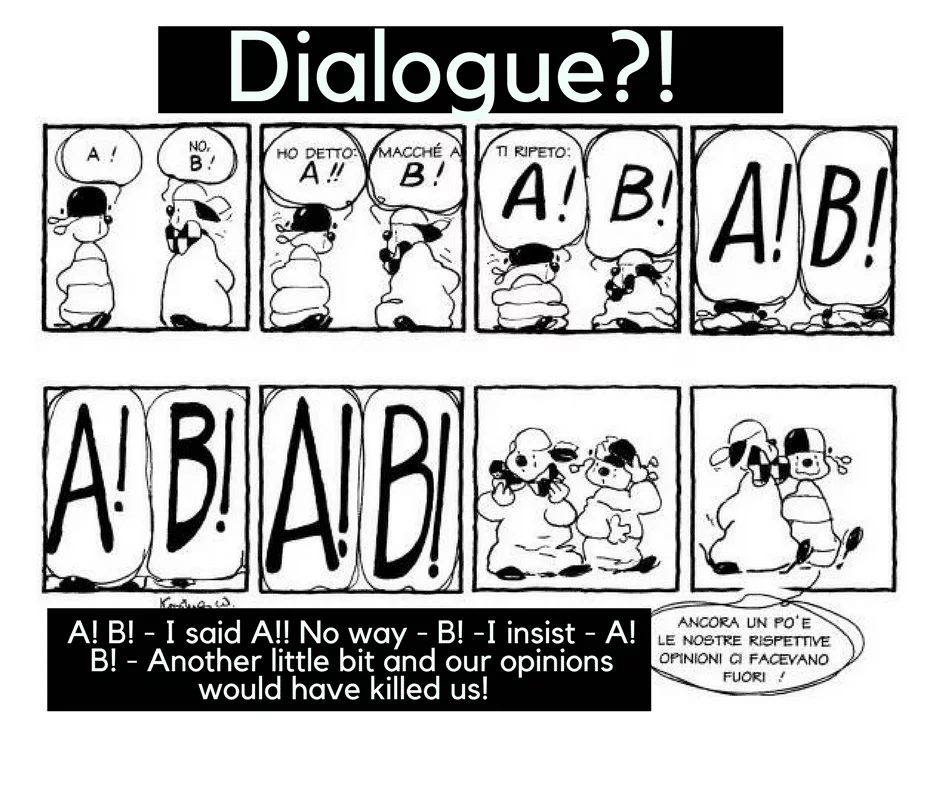
-
click to enlarge the cartoon
We have been looking for speakers on this extremely pertinent theme. Many of you no doubt would have something of value to contribute. To date we have considered including experiences from the following people:
Gennaro Lamagna A view of the Balkans by a man from Naples>
Beatriz Lauenroth Further and further East>
Tanino Minuta (to be published online in October)
Maria Bruna Romito (to be published online in October)

by TogetherforEurope | Sep 29, 2017 | Experiences, reflections and interviews, News
It is not easy to sum up more than ten years in Slovenia, Croatia and Romania.
I can say that I felt immediately at ease. My early times in Slovenia were demanding, because it was so completely different to where I had come from. I did not speak the language; the weather was very cold with the typical smell of coal burning in stoves inside seemingly every house. One of my first enduring impressions was the sense of order and discipline. I can recall going to buy fruit with one of my friends from the community. While he joined the queue outside the shop, I stood slightly to the side. Then I noticed that there was another queue forming behind me… I soon realised that the same was happening at bus stops too. I was very impressed by it.
After 5 years in Slovenia I then moved to Croatia which accompanied an immediate sense of freedom: I was starting to study the language at university, I was meeting many people, exploring and discovering the city I was living in and doing many interesting things which I could not do before. I found the Croats similar to my own people: warm, welcoming and appreciators of good food.
Fall of the Wall
This was an unforgettable experience lived with my friends moment by moment, aware that what we were seeing on the TV was the world in the process of changing!
The war
The war in the Balkans was one of my strongest experiences of that period. It was a strange one in that Zagabria, where I lived at the time, was not involved in the conflict directly. The first few days, however, were terrifying because of the presence of snipers shooting randomly at civilians. My strongest memory however is not so much of destruction but of solidarity among people. It was very moving to witness the arrival of humanitarian aid in the form of food and clothes. Around that time my parents both passed away in Naples. I went back to Italy, emptied my family home in Naples and brought everything back with me to Croatia to help those in need.
I recall how in 1993, still in the midst of war, we managed to organise a youth festival for approximately 3.000 young Catholic and Orthodox Christians, as well as Muslims from former Yugoslavia, Romania, Bulgaria and Moldova. One of the most emotional moments was a chant by a Muslim choir! The event was broadcasted by TV and radio and was on the front pages of all newspapers in the capital.
Dacia (Romania)
My experience in this country was one of coming from a life of prosperity and wellbeing to a situation of relative poverty. There was a sense in which the communist regime had managed to destroy all cultural, civic and folk tradition of that country. I was shocked! I recall a youngster whom I knew from having seen him around and who asked me for money. At the time, I could not help him because I did not have the amount he required. The episode made me think a lot: why did he asked me of all people? Because he knew I was Italian and thought I can return at any point where I came from. Real poverty is a feeling of not having anything and no one “able to help”.
As in Zagabria, also in Romania I experienced a deep communion among brothers and sisters who were looking for something that would finally give meaning to their life: Love! And with many of them, just like with those in Slovenia and Croatia to this day I have strong brotherly relationships.
by Gennaro Lamagna

by TogetherforEurope | Sep 28, 2017 | Experiences, reflections and interviews, News
Rossiya mon Amour
Winter 1991, Moscow. In the early afternoon, my plane touched down in Sheremetyevo Airport.
The arrivals hall was poorly lit, the queue outside the passport controls and visas, long. I had gotten a job at the famous Lomonosov University and with all my possessions was moving to Russia. It was already dark outside and I had the impression that this was the end of the world. Then I heard an announcement: Connections for Novosibirsk and Krasnoyarsk which made me realise that this was where everything started.
Magical beginnings
In Moscow, I lived in a small ecumenical community. Our apartment on Volochaevskaya street was in a working-class quarter, which did not feel particularly safe. When I asked why we didn’t move, like all the foreigners, on the secure embassy grounds, I was told: “Not to worry because where we were, we were protected by the proletariat.”
Contact with our neighbours was indeed spontaneous and easy: elderly women, sitting in the courtyard day and night knew exactly of all the comings and goings; the spontaneity of the children made me forget the awful smell of the dirty staircase. Our new friends – colleagues, students, old and young – all came gladly to Volochaevskaya. They don’t mind that the sofa in our apartment was half eaten by mice and that there was a water leak from a tube in the corridor. The beginnings of our deepening friendship helped us see everything in a different light and forget all the rest.
“Spiritual children” of Alexander Men
In the early 1990s production in Russia decreased rapidly. Shops were empty, everything was scarce. Religious life appeared to be extinct. Within the walls of former churches there were vodka making factories, offices, shops …
We had a long-standing acquaintance with the Russian Orthodox priest Alexander Men. Since the 1960s he had clandestinely baptised thousands of people and had shown a level of ecumenical openness that was dangerous for his time. A lively Orthodox Christian community formed around him. When he was violently killed, he left behind his “spiritual children” as traumatised orphans.
“Where two or three are gathered together in my name” (Mt 18:20)
Soon many people joined us. We lived together the word of the Scripture, for example, ” Where two or three are gathered together in my name, there am I in the midst of them” (Mt 18:20). As they said, they found a new homeland with us. “You don’t proselytise, instead you help us to become yeast for a self-renewal of the Russian Orthodox Church.” After years of spiritual drought, we experienced with them and many others a new Spring. I had never been so happy. The thirst for spiritual life united us despite our cultural differences, diverse upbringing or mentality.
My discovery
In the 1990s – with perestroika and glasnost – many organisations, among them sects, as well as genuine charities from a variety of Churches (Renovabis, Kirche in Not, Bonifatiuswerk, …) and religious Movements (Communion and Liberation, Neocatechumenal Way, Focolare, Community of Sant’Egidio, …) succeeded in entering countries behind the so-called “Iron Curtin”. Some stayed on and some have since left.
What is my personal experience as a citizen of Western Germany after nearly two decades in Russia? I have received much more from this country than I could ever give: among which the gift of deep contemplation which during the Russian Orthodox Liturgy allowed my relationship with God to grow deeper; solid friendships which continue in spite of distance and which reminds me of how much I am loved. In short, I have rediscovered my vocation as a Christian and as a woman: I am called to love.
I believe that during these years we have, in our own way, re-written the Acts of the Apostles. The reality of “having love for one another and having everything in common” (see Acts 4:32) both marked and moulded us. In this light, everything appeared as new: the Gospel goes much further … well beyond Novosibirsk and Krasnoyarsk!
by Beatriz Lauenroth
-

-
Beatriz Lauenroth with russian family

by TogetherforEurope | Sep 25, 2017 | Austria, News
WILLKOMMEN, BENVENUTI, WELCOME, VITAJTE, BIENVENUE…
The group „Friends of Together for Europe” will meet in Vienna.
We are looking forward to this being a great, profound, visible, inviting, serene and European event held Together.
The TfE Coordination Team in Vienna has reflected and consulted at length with the International Steering Committee in preparation for this meeting. Our focus recently has been preparations for the opening of the meeting on 9th November in St. Stephen’s Cathedral (Stephansdom) which will take the format of an ecumenical prayer. We have picked a location in the centre of Vienna and have invited public figures to attend. The Archbishop of Vienna, Cardinal Schönborn has confirmed his participation while the mayor of Vienna issued an invitation to an “Agape” to follow after the liturgy.
“9th November, Stephansdom – you are coming, aren’t you?” – everyone we speak to is eagerly looking forward to the event.
Will we succeed in filling the Stephansdom Cathedral? We entrust this aspiration in the spirit of what Chiara Lubich used call: “The music sheet already written in heaven”.
Coordination Team of TfE, Vienna
-

-

-
Stephansdom_kl3_mdb – edw
-

-
Stephansdom_(c)_Kathbild-Rupprecht
DOWNLOAD THE INVITATION (in german): Treffen Trägerkreis Wien 2017 – Einladung zum Gebetsabend>>




